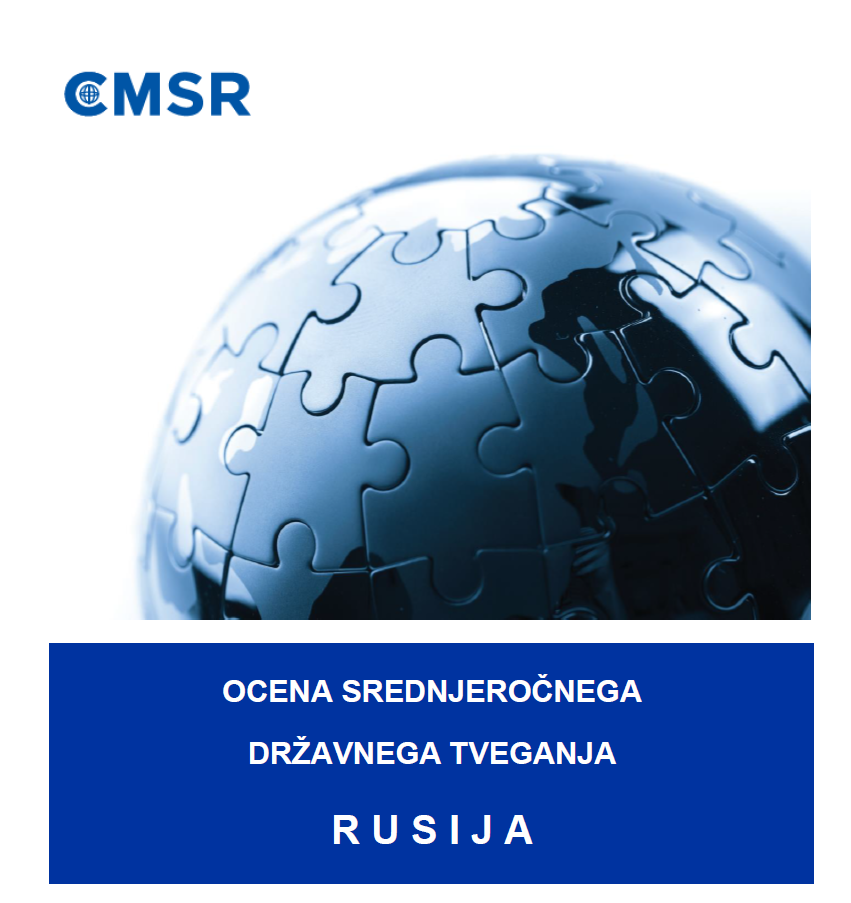New medium-term country risk assessment for Russia
7. 5. 2024
At the end of April 2024, the CMSR prepared a new medium-term country risk assessment for Russia, following its own country risk assessment methodology.
Russia's overall medium-term country risk has declined, mainly because of lower economic risk, and it is now classified as a country with high medium-term sovereign risk. The CMSR assigns the assessed country to one of five risk categories:
· A - Minimal medium-term country risk
· B - Very limited medium-term country risk
· C - Limited medium-term country risk
· D - High medium-term country risk
· E - Very high medium-term country risk
In addition to the final country risk assessment, each country risk category, i.e. political, economic and financial risk, is also classified into one of these five risk categories.
In the medium term, Russia's political risk will remain very high, while economic and financial risk are assessed as high, however both border on limited risk given the macroeconomic indicators.

Political risk will remain very high in the medium term and will not decrease as long as the war in Ukraine continues and international sanctions against Russia remain in place. Our central prediction is that the war in Ukraine will be a protracted conflict that will continue with varying intensity for years to come. The war is likely to slowly turn into a frozen conflict with an unstable demarcation line, with no prospect of a lasting peace. In the event of Russian military setbacks in Ukraine, the sustainability of President Vladimir Putin's regime would be in serious jeopardy. The extensive Western sanctions against Russia, which are expected to remain in place in the period 2024-2028 and possibly beyond, are exacerbating economic tensions due to the high costs of the war in Ukraine. In the short term at least, Putin has consolidated his position and consolidated his power by winning the presidential elections again. If the country's economic situation deteriorates, the risk of internal political instability will increase, but the longer the war in Ukraine lasts, the greater the risk of revolt by individuals in the political-economic elite who oppose the war and Putin's authoritarianism. Russia's relations with the West will remain strained, and political and economic integration with China, as well as with Iran, Turkey, North Korea and some other countries that do not respect sanctions, will continue.
Economic risk has declined over the past year and a half, due to higher-than-expected GDP growth, lower inflation and higher interest rates, while the budget deficit has also narrowed and Russia is still running a current account surplus. Financial risk is being reduced by low external indebtedness and the stabilisation of the banking sector.
Slovenia continues to support EU sanctions against Russia, which has led to a cooling of bilateral political relations. Trade volumes fell sharply last year, especially Slovenian imports, and both exports and imports are expected to fall this year. In the medium term, trade trends will continue to depend on sanctions. The situation will remain uncertain and supply chains and transport disrupted. We do not expect any direct investment by Slovenian companies in Russia in the medium term.
Russia's Medium-Term Country Risk Assessment can be ordered at: info@cmsr.si
More information: darja.zlogar@cmsr.si

